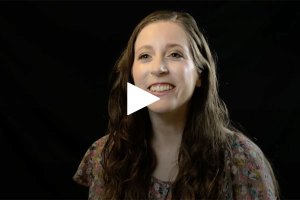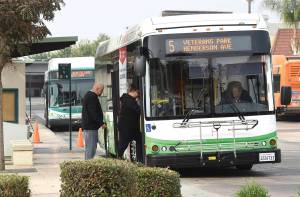Internship program pays teens to volunteer
Published 7:05 am Tuesday, March 4, 2008
Three Shoreline teenagers are apart of a group of 60 interns who outshone 310 applicants to work for Teens in Public Service (TIPS) based on their maturity, motivation and respect for underprivileged and stigmatized groups of people.
“Our mission is to create future leaders and instill in them a sense of social responsibility and awareness of the needs of the community,” said TIPS Program Director Katie Earley.
TIPS hires high school students aged 15 to 19 as paid interns for their program. The interns are placed at one of 48 non-profit organizations in the Greater Seattle area where they volunteer 20-30 hours per week.
“It’s a win-win for the high school student who has a paid summer job and the non-profit that doesn’t pay them,” Earley said of the program, which lasts six to eight weeks.
Sandra Amolo requested to work with AIDS/HIV patients during her internship because she was born in Kenya where AIDS is prevalent. By working with these patients, she wanted to see how AIDS affects Americans compared to those infected in Kenya.
Her request was granted, and Amolo interned at the Bailey-Boushay House. The Seattle non-profit offers an adult day health program providing services to AIDS patients who are living independently. The non-profit also provides a 35-bed residential care program for cancer and AIDS patients who require nursing care and can’t live alone. Some of the clients have mental health issues, are homeless and a significant number of the clients are homosexual.
AIDS patients represent 75 percent of the client roster.
“They all impacted me in different ways and opened my eyes to different things,” Amolo said.
The clients Amolo handed out medication to and chatted with during the day taught her to live life in the present and to not stress about the future.
“They are always happy and take life as it comes,” she said. “They’re not worrying about what’s coming next.”
At the Bailey-Boushay House, the hiring staff looks for dependability, the ability to work with diverse groups and a general acceptance of people in potential volunteers. These requirements are influenced by the people who use the non-profit’s resources.
“She demonstrated immediately remarkable maturity,” volunteer program manager David Pavlick said. “She worked with clients and residents…with a calm, accepting and reassuring manner.”
Her attitude and comfort around AIDS patients came naturally to her from spending more than half of her life in a country where the disease is part of the norm.
“Back home you knew what to expect in terms of taking care of yourself,” Amolo said. “I was more concerned with people liking me [at the Bailey-Boushay house] than the disease.”
She volunteered for the YMCA while attending Shorecrest High School, where volunteer work taught Amolo about other people and herself.
“Community service is a big deal at Shorecrest,” she said. “They make sure everyone is involved.”
As with Amolo, Angad Nirh landed his internship by displaying strong leadership qualities, like being a team player.
“He’s willing to stay later and is always thinking about what other people need,” said Rachel Clark, family support specialist for Shoreline Family Support Center.
TIPS staff placed Nirh, a sophomore at Shorecrest, at the Shoreline Family Support Center so he could work close to home. Their mission is to help families find resources to help them connect with each other and to the community.
“People go into social work programs…to help people,” Clark said. “But we’re going to meet on an equal basis and treat people with respect.”
One of Nirh’s assets for the job is that he’s trilingual. He moved to Shoreline six years ago from India and speaks his native language with two of his campers. Nirh studies Spanish at school, which allows him to converse with many of his campers and their parents.
“Communication is a big part of this job,” he said.
Nirh helps lead Summer Explorers, a day camp where kids are provided with lunches and are taken on field trips to the Ballard Locks, the Seattle Aquarium and parks.
“You earn with hard work,” he said. “I’ve learned a lot over this summer.”
He also takes care of the kids by chaperoning them on field trips, filling their water bottles and making sure they wash their hands before lunch.
“These aren’t challenges, but teens don’t typically do this stuff at home,” he said.
Spending time with 25 kids between the ages of five and 10 has taught Nirh to be flexible, patient and how to make decisions on the fly when things aren’t going according to plan.
“Patience is a big thing,” he said. “You have to make sure each kid is happy and likes what they’re doing.”
Shorewood High School sophomore Dillon Iwasaki learned patience would help him while interning at Eco Encore.
Jessie Alan, executive director of the non-profit gave Iwasaki a lot of information on the first day of his internship and expected him to work independently to complete his tasks.
“I had no idea he was shocked,” she said. “He handled it gracefully and said, ‘That sounds great’.”
Eco Encore sells gently used but high quality books, CDs, software and DVDs online through Amazon.com The non-profit accepts donations from academic institutions and service organizations preventing them from being dumped into a landfill. The profits go to environmental organizations in the region.
During his internship, Iwasaki did more than lick envelopes and file papers, which is what he expected his job duties to consist of.
Instead, he had the opportunity to train other volunteers, run their booth at the reusable energy fair and learn how to do public relations type skills.
“TIPS placed me there and it was the right fit,” he said.
This summer’s interns were interviewed and chosen by a panel of 28 members, half of which were adult volunteers familiar with TIPS and the other half former TIPS interns.
“We’re trying to find a balance,” Earley said. “We’re not necessarily looking for a kids who’s doing everything and has a 4.0 grade point average.”
Instead, TIPS is looking for applicants who are passionate, have an understanding of the program and show leadership potential.
“They’re not sitting there waiting to be handed work,” Earley said.
The interns are placed at organizations based on the needs of the non-profit, location and the individual’s skills and interests.
Applicants are required to fill out an application and submit two letters of recommendation by mid-April.
In January, TIPS sends brochures, posters and fact sheets to the 30 schools they collaborate with to recruit summer interns.
“I find our program is a very easy sell,” Earley said. “We go to job fairs and we’re typically the most popular table.”




